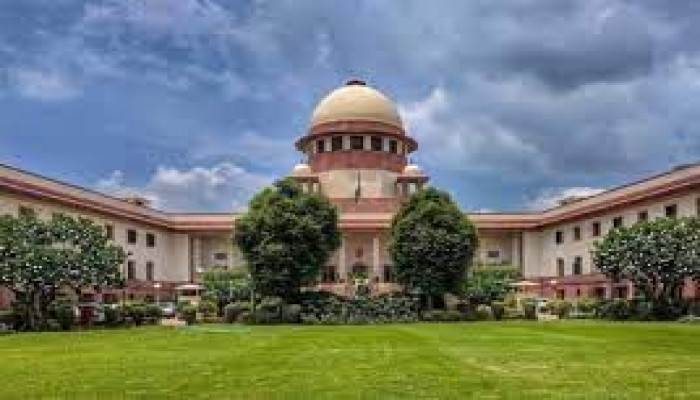SC grants permission to Delhi government to amend petition challenging New Service Law
- In Reports
- 05:53 PM, Aug 25, 2023
- Myind Staff
The Supreme Court has granted permission to the Delhi government to amend its earlier petition filed this year. This move comes as the government seeks to challenge the Delhi Services Ordinance, which granted the Union government control over the bureaucratic setup in the national capital. The decision was made after Chief Justice of India (CJI) Dhananjaya Y Chandrachud acknowledged the Delhi government's submission that modifications were necessary due to the replacement of the services ordinance with the GNCTD (Amendment) Act, 2023.
During the proceedings, senior counsel Abhishek Manu Singhvi, with assistance from advocate Shadan Farasat, brought forth the plea before the CJI. In response, Solicitor General Tushar Mehta, representing the Centre, expressed no objection to the requested amendment.
Following this, the CJI issued a concise order, permitting the Delhi government to amend its petition. This amendment will enable the government to challenge specific clauses within the newly enacted law.
The Delhi Services Ordinance, initially promulgated on May 19, was subsequently replaced by a bill that received parliamentary approval on August 8. Just four days after this, changes to the Government of National Capital Territory of Delhi (GNCTD) Act were officially incorporated into the legal framework. This led to the transfer of administrative control of the city to the Centre, following the President's assent.
This alteration introduced a new chapter, Part IVA, to the GNCTD Act, essentially establishing a National Capital Civil Service Authority (NCCSA) and a public service commission for overseeing transfers and postings of officers within the Delhi government's domain. Prior to this, Delhi lacked its own service commission.
As per the new law, the NCCSA, chaired by Chief Minister Arvind Kejriwal and comprising two senior Delhi government bureaucrats, holds authority over all officer transfers and postings. Decisions within the authority are reached by the majority, but the final decision rests with the Lieutenant Governor (L-G).
However, introduction of this new law appears to counter a constitution bench judgment from May 11. Which emphasized the necessity of constitutionally entrenched and democratically elected governments having control over their administration.
The initial ordinance faced legal challenge in the Supreme Court by the Delhi government. The government expressed concerns that the ordinance granted the Union government the power to take control of the capital's governance, thereby undermining both democratic governance and the regional will of Delhi's electorate.
Additionally, the government sought a stay on the ordinance, claiming it was issued to negate favorable Constitution bench decisions from May 11 and July 2018, which supported the elected government.
Subsequently, the legal challenge was referred to a constitution bench of five judges. The bench's reference order acknowledged the Parliament's power to enact a law granting executive power over services to the Centre; however, it posed the question of whether the exercise of such power was valid.
As the legal proceedings continue, the contours of Article 239-AA (7) have also come into focus. This article empowers Parliament to enact laws that supplement provisions contained in Article 239AA, which guides Delhi's administration.
The developments highlight the complex legal and constitutional dynamics at play, as the Delhi government and the Centre grapple over jurisdiction and governance within the national capital.
Image source: Live Law







Comments